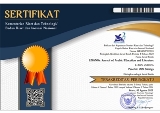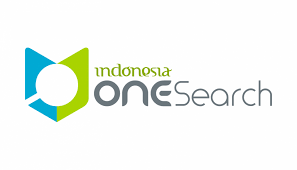Intention and Motivation in Online Arabic Courses: Agency for Learning Phenomenon
Abstract
Keywords
Full Text:
PDFReferences
Abdelhadi, Amal, Carley Foster, and Paul Whysall. 2014. “An Exploratory Investigation of Aberrant Consumer Behaviour in Libya: A Sociocultural Approach.” Journal of Marketing Management 30(9–10):857–73. doi: 10.1080/0267257X.2014.927900.
Akella, Devi. 2010. “Learning Together: Kolb’s Experiential Theory and Its Application.” Journal of Management & Organization 16(1):100–112. doi: 10.5172/jmo.16.1.100.
Albantani, Azkia Muharom, and Ahmad Madkur. 2017. “Musyahadat Al Fidyu: Youtube-Based Teaching and Learning of Arabic as Foreign Language (AFL).” Dinamika Ilmu 17(2). doi: 10.21093/di.v17i2.854.
Alhasanat, Issa Khalil. 2019. “Using Smartphones in Learning Arabic by AOU Students.” Higher Education Studies 10(1):48. doi: 10.5539/hes.v10n1p48.
Al-Osaimi, Saleh, and Martin Wedell. 2014. “Beliefs about Second Language Learning: The Influence of Learning Context and Learning Purpose.” The Language Learning Journal 42(1):5–24. doi: 10.1080/09571736.2012.661753.
Ashour, Sanaa. 2020. “How Technology Has Shaped University Students’ Perceptions and Expectations around Higher Education: An Exploratory Study of the United Arab Emirates.” Studies in Higher Education 45(12):2513–25. doi: 10.1080/03075079.2019.1617683.
Asmari, AbdulRahman Awadh Al. 2015. “Communicative Language Teaching in EFL University Context: Challenges for Teachers.” Journal of Language Teaching and Research 6(5):976. doi: 10.17507/jltr.0605.09.
Asmawati, Asmawati, Asy’ari Asy’ari, and Malkan Malkan. 2020. “Active Learning Strategies Implementation in Arabic Teaching at Senior High School.” INTERNATIONAL JOURNAL OF CONTEMPORARY ISLAMIC EDUCATION 2(1):1–20. doi: 10.24239/ijcied.Vol2.Iss1.10.
Asrial, Asrial, Syahrial Syahrial, Dwi Agus Kurniawan, May Subandiyo, and Nur Amalina. 2019. “Exploring Obstacles in Language Learning: Prospective Primary School Teacher in Indonesia.” International Journal of Evaluation and Research in Education (IJERE) 8(2):249. doi: 10.11591/ijere.v8i2.16700.
Bahruddi̇n, Urıl, and Sucı Ramadhanti Febriani. 2020. “Student’s Perceptions of Arabic Online Learning during COVID-19 Emergency.” Journal for the Education of Gifted Young Scientists 1483–92. doi: 10.17478/jegys.763705.
Bandura, A. 2008. “Toward an Agentic Theory of the Self.” in Self-processes, learning, and enabling human potential: Dynamic new approaches. Charlotte, NV: Information Age Publishing.
Baum, Sandy, and Michael McPherson. 2019. “The Human Factor: The Promise & Limits of Online Education.” Daedalus 148(4):235–54. doi: 10.1162/daed_a_01769.
Bernaus, Mercè. 2009. “Teachers’ Motivation, Classroom Strategy Use, Students’ Motivation and Second Language Achievement.” Porta Linguarum Revista Interuniversitaria de Didáctica de Las Lenguas Extranjeras. doi: 10.30827/Digibug.31869.
Bledsoe, Caroline H., and Kenneth M. Robey. 1986. “Arabic Literacy and Secrecy Among the Mende of Sierra Leone.” Man 21(2):202. doi: 10.2307/2803157.
Brophy, Jere. 1999. “Toward a Model of the Value Aspects of Motivation in Education: Developing Appreciation For..” Educational Psychologist 34(2):75–85. doi: 10.1207/s15326985ep3402_1.
Code, Jillianne. 2020. “Agency for Learning: Intention, Motivation, Self-Efficacy and Self-Regulation.” Frontiers in Education 5:19. doi: 10.3389/feduc.2020.00019.
Coupland, Nikolas, ed. 2010. The Handbook of Language and Globalization. Malden, MA: Wiley-Blackwell.
DeCuir-Gunby, Jessica T., Patricia L. Marshall, and Allison W. McCulloch. 2011. “Developing and Using a Codebook for the Analysis of Interview Data: An Example from a Professional Development Research Project.” Field Methods 23(2):136–55. doi: 10.1177/1525822X10388468.
Dörnyei, Zoltán, and Christine Muir. 2019. “Creating a Motivating Classroom Environment.” Pp. 719–36 in Second Handbook of English Language Teaching, Springer International Handbooks of Education, edited by X. Gao. Cham: Springer International Publishing.
Elkhafaifi, Hussein. 2005. “Listening Comprehension and Anxiety in the Arabic Language Classroom.” The Modern Language Journal 89(2):206–20. doi: 10.1111/j.1540-4781.2005.00275.x.
Fathoni, Anang, and Heri Retnawati. 2021. “Challenges and Strategies of Postgraduate Students in Online Learning during the Covid-19 Pandemic.” Jurnal Prima Edukasia 9(2). doi: 10.21831/jpe.v9i2.37393.
Garbe, Amber, Uzeyir ogurlu, Nikki Logan, and Perry Cook. 2020. “Parents’ Experiences with Remote Education during COVID-19 School Closures.” American Journal of Qualitative Research 4(3). doi: 10.29333/ajqr/8471.
Gardner, Howard. 1999. The Disciplined Mind: What All Students Should Understand. New York: Simon & Schuster.
Gardner, R. C., and P. F. Tremblay. 1994. “On Motivation, Research Agendas, and Theoretical Frameworks.” The Modern Language Journal 78(3):359–68. doi: 10.1111/j.1540-4781.1994.tb02050.x.
Habash, Nizar Y. 2010. Introduction to Arabic Natural Language Processing. Cham: Springer International Publishing.
Hamid, Rimba, Izlan Sentryo, and Sakka Hasan. 2020. “Online Learning and Its Problems in the Covid-19 Emergency Period.” Jurnal Prima Edukasia 8(1):86–95. doi: 10.21831/jpe.v8i1.32165.
Lapitan, Lorico DS., Cristina E. Tiangco, Divine Angela G. Sumalinog, Noel S. Sabarillo, and Joey Mark Diaz. 2021. “An Effective Blended Online Teaching and Learning Strategy during the COVID-19 Pandemic.” Education for Chemical Engineers 35:116–31. doi: 10.1016/j.ece.2021.01.012.
Leo, Shirley, Nizar Mohammad Alsharari, Jainambu Abbas, and Muhammad Turki Alshurideh. 2021. “From Offline to Online Learning: A Qualitative Study of Challenges and Opportunities as a Response to the COVID-19 Pandemic in the UAE Higher Education Context.” Pp. 203–17 in The Effect of Coronavirus Disease (COVID-19) on Business Intelligence. Vol. 334, Studies in Systems, Decision and Control, edited by M.T. Alshurideh, A. E. Hassanien, and R. Masa’deh. Cham: Springer International Publishing.
Mahyoob, Mohammad. 2020. “Challenges of E-Learning during the COVID-19 Pandemic Experienced by EFL Learners.” Arab World English Journal 11(4):351–62. doi: 10.24093/awej/vol11no4.23.
McLoughlin, Catherine, and Mark J. W. Lee. 2010. “Personalised and Self Regulated Learning in the Web 2.0 Era: International Exemplars of Innovative Pedagogy Using Social Software.” Australasian Journal of Educational Technology 26(1). doi: 10.14742/ajet.1100.
Mendoza, Anna, and Huy Phung. 2019. “Motivation to Learn Languages Other than English: A Critical Research Synthesis.” Foreign Language Annals 52(1):121–40. doi: 10.1111/flan.12380.
Myatt, Glenn J. 2007. Making Sense of Data: A Practical Guide to Exploratory Data Analysis and Data Mining. Hoboken, N.J: Wiley-Interscience.
Pintrich, Paul R. 2004. “A Conceptual Framework for Assessing Motivation and Self-Regulated Learning in College Students.” Educational Psychology Review 16(4):385–407. doi: 10.1007/s10648-004-0006-x.
Ritonga, Mahyudin, Martin Kustati, Meliza Budiarti, Ahmad Lahmi, Musda Asmara, Rahadian Kurniawan, Neli Putri, and Endri Yenti. 2021. “Arabic as Foreign Language Learning in Pandemic COVID-19 as Perceived by Students and Teachers.” Linguistics and Culture Review 5(1):75–92. doi: 10.21744/lingcure.v5n1.726.
Schachter, Elli P., and Yisrael Rich. 2011. “Identity Education: A Conceptual Framework for Educational Researchers and Practitioners.” Educational Psychologist 46(4):222–38. doi: 10.1080/00461520.2011.614509.
Simamora, Roy Martin. 2020. “The Challenges of Online Learning during the COVID-19 Pandemic: An Essay Analysis of Performing Arts Education Students.” Studies in Learning and Teaching 1(2):86–103. doi: 10.46627/silet.v1i2.38.
Simamora, Roy Martin, Daniel De Fretes, Ezra Deardo Purba, and Daniel Pasaribu. 2020. “Practices, Challenges, and Prospects of Online Learning during Covid-19 Pandemic in Higher Education: Lecturer Perspectives.” Studies in Learning and Teaching 1(3):185–208. doi: 10.46627/silet.v1i3.45.
Terre Blanche, M. J., Kevin Durrheim, and Desmond Painter, eds. 2006. Research in Practice: Applied Methods for the Social Sciences. 2nd ed. Cape Town: UCT Press.
Yahya, Muhyidin, Maftuhati Maftuhati, Abdul Hayyi Mustofa, and Zakiyah Arifa. 2021. “Online-Based Arabic Learning Management During the Covid-19 Pandemic Era: Plan, Implementation and Evaluation.” Al-Ta’rib : Jurnal Ilmiah Program Studi Pendidikan Bahasa Arab IAIN Palangka Raya 9(1):85–98. doi: 10.23971/altarib.v9i1.2505.
Yousaf, Kanwal, and Tabassam Nawaz. 2022. “A Deep Learning-Based Approach for Inappropriate Content Detection and Classification of YouTube Videos.” IEEE Access 10:16283–98. doi: 10.1109/ACCESS.2022.3147519.
Zimmerman, Barry J., and Dale H. Schunk, eds. 2013. Self-Regulated Learning and Academic Achievement. 0 ed. Routledge.
Zurqoni, Zurqoni, Heri Retnawati, Syarifatur Rahmatullah, Hasan Djidu, and Ezi Apino. 2020. “Has Arabic Language Learning Been Successfully Implemented?” International Journal of Instruction 13(4):715–30. doi: 10.29333/iji.2020.13444a.
DOI: https://doi.org/10.18326/lisania.v7i1.31-45
Refbacks
- There are currently no refbacks.
Copyright (c) 2023 Azkia Muharom Albantani, Abd. Rozak, Mohamad Syafri

This work is licensed under a Creative Commons Attribution-ShareAlike 4.0 International License.
View My Stats







